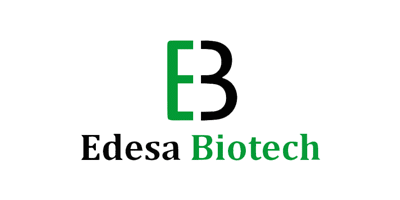TORONTO, ON / ACCESSWIRE / Edesa Biotech, Inc. (NASDAQ:EDSA), a clinical-stage biopharmaceutical company, today announced a collaborative research project with the National Research Council of Canada (NRC) to develop novel immunotherapies for vitiligo as well as other indications.
Related Article: Edesa Biotech Reports Financial Results for 2019 Fiscal Year
Vitiligo is a life-altering autoimmune disease that results in the depigmenting of the skin. People who have vitiligo develop white patches of skin due to the destruction of special cells called melanocytes which produce the skin pigment melanin. The cause of vitiligo is not known but evidence strongly suggests that vitiligo is an autoimmune disorder in which the body’s immune system mistakenly targets and injures these cells. Vitiligo can affect any area of skin, but it commonly occurs on the face, neck, and hands. According to the World Health Organization, vitiligo affects approximately 1% of the world’s population. It is a lifelong condition.
“Despite high prevalence, vitiligo remains one of the most untouched areas in modern medical treatments and there has been little research compared to other immune disorders. Currently, there are few treatment options available for patients with limited efficacy. To address this unmet medical need, we are focusing our development on novel immune targets implicated in vitiligo pathogenesis and with the support of the NRC plan to advance these treatments toward clinical validation in a rapid, cost-effective manner.”
– Dr. Par Nijhawan, CEO of Edesa
“Working with innovative Canadian companies like Edesa is core to our aim here at the NRC of advancing and accelerating the development of therapeutic technologies,” said Anne Marcil, NRC Team Lead for the project. “Immunotherapies are changing the standard of care for many diseases and we’re excited to support Edesa’s efforts in developing new therapies for patients with vitiligo and other autoimmune diseases.”
Under the agreement, NRC scientists will produce multiple monoclonal antibodies for Edesa to identify a lead candidate to take into IND-enabling studies. The NRC will grant Edesa an exclusive worldwide license for the antibodies arising from the project. Edesa expects to complete the initial phase of the project by the end of the year.
About Edesa Biotech, Inc.
Edesa Biotech, Inc. (Nasdaq: EDSA) is a clinical-stage biopharmaceutical company focused on efficiently developing innovative treatments that address significant unmet medical needs. Edesa’s lead product candidate, EB01, is a novel non-steroidal anti-inflammatory molecule (sPLA2 inhibitor) for the treatment of chronic allergic contact dermatitis which has demonstrated statistically significant improvements in multiple clinical studies. A Phase 2b clinical study of EB01 was initiated in October 2019. Edesa also intends to expand the utility of its sPLA2 inhibitor technology, which forms the basis for EB01, across multiple indications and expand its portfolio with assets that can drive long-term growth opportunities. The company is based in Markham, Ontario, Canada, with U.S. offices in Southern California.
National Research Council Canada
Founded in 1916, the National Research Council of Canada (NRC) is Canada’s largest federal research and development organization. The NRC partners with the Canadian industry to take research impacts from the lab to the marketplace. This market-driven focus is designed to shorten the time between early-stage research and development and commercialization, enhance people’s lives and address some of the world’s most pressing problems. The Ministry of Innovation, Science and Economic Development oversees the NRC.
Edesa Forward-Looking Statements
This press release may contain forward-looking statements within the meaning of Section 27A of the Securities Act of 1933, as amended, and Section 21E of the Securities Exchange Act of 1934, as amended. Forward-looking statements may be identified by the use of words such as “anticipate,” “believe,” “plan,” “estimate,” “expect,” “intend,” “may,” “will,” “would,” “could,” “should,” “might,” “potential,” or “continue” and variations or similar expressions, including statements related to the timing of project milestones. Readers should not unduly rely on these forward-looking statements, which are not a guarantee of future performance. There can be no assurance that forward-looking statements will prove to be accurate, as all such forward-looking statements involve known and unknown risks, uncertainties and other factors which may cause actual results or future events to differ materially from the forward-looking statements. Such risks include the ability of Edesa to obtain regulatory approval for or successfully commercialize any of its product candidates, the risk that access to sufficient capital to fund Edesa’s operations may not be available or may be available on terms that are not commercially favorable to Edesa, the risk that Edesa’s product candidates may not be effective against the diseases tested in its clinical trials, the risk that Edesa fails to comply with the terms of license agreements with third parties and as a result loses the right to use key intellectual property in its business, Edesa’s ability to protect its intellectual property and the timing and success of submission, acceptance and approval of regulatory filings. Many of these factors that will determine actual results are beyond the company’s ability to control or predict. For a discussion of further risks and uncertainties related to Edesa’s business, please refer to Edesa’s public company reports filed with the U.S. Securities and Exchange Commission and the British Columbia Securities Commission. All forward-looking statements are made as of the date hereof and are subject to change. Except as required by law, Edesa assumes no obligation to update such statements.
Contacts
Gary Koppenjan
Edesa Biotech, Inc.
(805) 488-2800 ext. 150
investors@edesabiotech.com
Media Relations
National Research Council of Canada
613-991-1431
1-855-282-1637
media@nrc-cnrc.gc.ca
